Tapan Mukherjee, Chef and Consultant, Tapan Mukherjee and Co
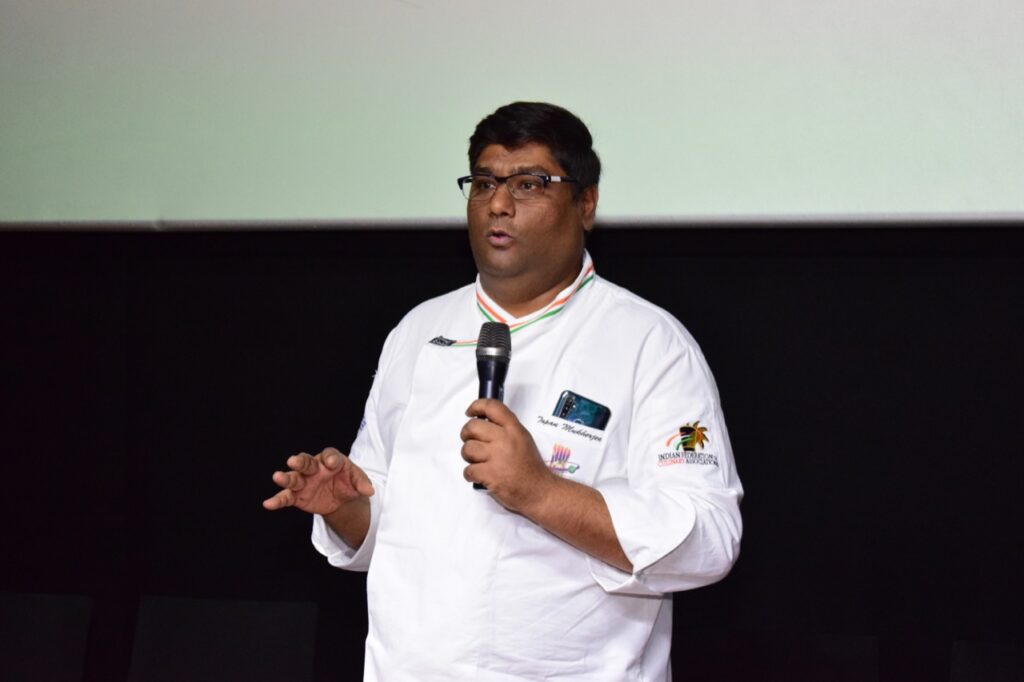
Chef Tapan started his career with the Grand Hyatt in Delhi as a part of the opening team. He was a part of the European speciality restaurant, Brix. Followed by his overseas stint wherein he handled three rosette restaurants. After coming back, he joined the Oberoi Hotels in Delhi where he managed Italian speciality restaurant along with their coffee shop. Sensing a gap in Indian hospitality sector where no Indian consultant existed, he set his consulting firm. He has been consulting for more than a decade. He deals with all the big brands from the hospitality industry and with the government as well. For his stellar work he was awarded Young Visionary Award by the Ministry of External Affairs, Government of India. Currently, Chef Tapan is based in Delhi but his work gets him to travel all across India.
Chef Tapan gets nostalgic while speaking about what inspired him to join this interesting profession. He expressed, “There were not many options in the 90s. I was very fond of food and cooking. It is something that I enjoyed, even as a child. I somehow felt food spoke to me. Food has its own language and fortunately I could understand it. I remember when I used to go with my mother to buy vegetables, we used to buy onions and my mother used to be surprised that the onions I picked would not be bitter/ pungent. I used to watch her cook and see the ingredients she used and I found it really interesting. But unfortunately, at that time being a chef was not looked upon as a career choice. Call it luck, one of my friends suggested going for hotel management and I went ahead with it. I took to cooking like a duck takes to water. I was very good at it. We had a student position known as the “Chef of the College” which was usually given to a final year student, but I got it in my second year itself. My mother had sleepless nights when I told her that I wanted to be a chef. She could not fathom that fact. So, I do get surprised to see that now people choose this as a career option and yes, it is an interesting career choice. There is more to hospitality and to being a chef than meets the eye. It is like a diamond. It has many facets. Looking back, I feel it was a great choice. But for me I think it kind of happened accidentally.” Laughing, he says, “It was a Love cum Arranged marriage.”
He further expresses that, “Right now we are working on how, in the defense, the food can be made better. Couple of years back a person in the BSF had made a video addressed to the Prime Minister that the food was not good. He did not complain about the bullets or the uniform but he spoke about food. From that angle I feel that food is a very important part and we do not discriminate between soldier and officer. it is one of the basic needs of man and it is something that touches everyone. If you ask anyone why they are working their answer is to get the basic needs.”
“The reason why I left hotels and started my own consulting firm was that it would give me a larger palette to play with. It is not the same problems every day. For instance, if we are working with a company having a cafeteria and they are serving 1000 workers, their requirements and problems are very different from a fancy restaurant or a cinema hall or a hospital. And we have to come up with innovative solutions. So that is what keeps me going and that is what keeps me interested as we work across the spectrum.”
One client wanted to know how customers choose restaurants and to solve that interesting problem we conducted a research as no such previous research had been done. The results of research were unexpected. Contrary to popular belief that food is the most important factor; we found that decision is based on multiple other factors namely- availability of parking space , more vegetarian options on the menu, kid friendly restaurant, etc.
It was a survey conducted with 50,000 respondents all across the country and overseas. What they found was that the factors remain the same. It is based on the occasions that the factors get different weights. His clients were surprised by the answers but the fact was that this was the response of the audience.
With regards to restaurants that fail he says that till today most of the big brands are still confused. They really don’t know what they stand for. He gives an example of Dominoes and Pizza Hut. Both brands are popular for their pizzas. Dominos largely does delivery while Pizza hut is Dine-in. But Pizza Hut has also started delivery and Dominoes has also started dine-in. Each one wants to capture the 2% market of the other, not realizing that they are spending 40% resources to acquire that 2%. In his opinion, this is a big problem in the industry. He says, “They are not able to hold on to the niche and as a result they try to sell to everybody but end up selling to nobody.”
The secret to success, as per him is simple. It is perseverance and hard work followed by perseverance and hard work and more perseverance and hard work!!!
He is passionate about doing something new, touching people’s lives, changing things and making a difference. That is what drives him.
He has a very strong opinion and suggestion with regards to the courses at IHM. He said, “I would like to change the entire course of IHM. I think we need to start with the hospitality industry getting more recognition. If you see the pandemic that just happened, take for example Delhi and Bombay, the Taj Group of Hotels came forward and they gave food for the Delhi government hospitals and the hospitals in Bombay. The government, that is a much bigger set up than the Hospitality Industry were not able to come up with a solution. But one of the bigger players in the industry came forward and provided a solution. When the hospitals were full and the government did not have space for the patients, again the government requisitioned the hotels to be used as hospitals. So again, it is the industry that came forward. So, in my opinion the hospitality industry has not got its due.
Goa as a state is very strongly dependant on tourism so they lay a lot of emphasis on who is going to be the Tourism Minister. But if you talk about some states such as Chhattisgarh, they may or may not have a Tourism Minister. They do not think of it as important as for them they do not see it as something that they can do anything out of tourism. I think we need to move away and make tourism a national subject and if we want it be seen as an overall picture then we, in the industry, need to define who we need to recruit.
And for this IHMs need to produce people who are employment ready. If you look at the industry right now, most of the students who complete their course join as trainees. So, they undergo one or two years more within the hotel working, training and learning. What is the point of doing a three-year course if you are eventually going to spend another 2 years training? Why cannot this learning happen in three years in the institute?
We have a national institute for ranking institutions in management, law etc. Hotel management institutions do not figure in that? Why is the hotel management ranking not done there?
Some time ago, the national education policy came about. The policy does not talk about Hotel management anywhere. We talk about MSMEs, we talk about generating employment and about so many things but I do not see anything happening in the Hotel industry.
So, it is not that a few things have to be changed in the courses of IHM. What we have is redundant. We need to keep up with the times and be modern. I think our focus on academics or academia must not be on producing someone who is employment ready but to produce a product that is future ready and who should be able to deliver for the lifetime of his career because a person does not join the industry just for a few years. He will be with the industry till the time he retires. We do not have this right now.
Apart from sharing his opinions about IHM, Chef Tapan goes one step forward and also provides us with a solution to the problem. He says, “We can start by initiating a dialogue and we can start talking. I feel that the industry needs to come forward and say that this is the requirement that we have and institutes need to incorporate that into their teaching. The hotel management colleges should become more stringent and tough. They should teach more to the students. Nowadays, every chef is expected to be social media savvy but that is not taught in the hotel management institute. All chefs also need to know a little bit about marketing. They don’t need to be experts at it but at least they should have a rudimentary understanding of the concept of marketing. This currently is missing. Our focus in hotel management, right now, is to teach the student how to cook but that comes by practice. So, we end up neither producing a good cook nor a good manager.
We then asked Chef Tapan as to how, in his expert opinion, has Covid-19 affected the hospitality industry especially the kitchen operations, he said, “The pandemic is good as well as bad. It was bad because it impacted the lives of human beings. But every dark cloud has a silver lining. So, the good came out of it was that the manner in which we did business earlier has now completely changed because the consumer has completely changed. Prior to Covid-19, at least in India, there would be times where a lot of people would go and eat at a dhaba or restaurant or a road side place if the food was tasty, even if it was in an unhygienic place. Post Covid-19, ‘taste’ is going to be the second most important factor while hygiene is going to be more important. Basically, it has affected the consumer’s behavior of how to consume. So, we, as the industry, have to evolve with the changing times. Takeaways are going to do better now than dine ins. Even though slowly everything is opening up, people are still scared to go and eat at a restaurant.”
With regards to the permanent changes for the future, post Covid-19, he mentioned that hygiene is definitely going to take a lot of importance. He believes that restaurants used to have really long menus earlier; that too will also get shortened. Earlier, you could do a takeaway on a dine-in menu but now we may see 2 menus, one for dine-in and one for takeaway. So those are the changes he can definitely see coming into the industry very soon.
When asked about sustainability in the food industry, Chef Tapan says, “We have been talking about sustainability for a very long time. I am the Vice President of the Chef’s Guild of India and last year we did a conclave on sustainability and food. Zero Hunger is one of the sustainable development goals of the UN. We believe that we need to be responsible. We know that a chef is somebody whom the management and the consumer both trust and are willing to listen to in matters related to food. So, the chefs need to come forward and lead not just inside the kitchen but outside, to ensure that sustainability in food doesn’t remain a fancy term or jargon to be discussed in meetings or conferences but a practice within the kitchen. We need to ensure that wastage is reduced in the kitchen, we need to know from where the ingredients are coming from and we need to make sure that we are efficiently utilizing the ingredients that are coming into the kitchen. I am glad to say that we have been doing this.
There exists a cliché that in the kitchen there is a lot of wastage. But for me as a chef, even if I look at a potato, I look at it as money because buying it has cost me money. So, I need to make sure that I use every part of that potato. However, now these practices need to be more engraved and more detailed and should also become a part of operations. This is where the chef’s role as a leader becomes important.”
His message to young and aspiring chefs is, “Please choose very carefully why you want to become a chef because it is a lot of responsibility. To be a chef you have to be a teacher and you have to be great at cooking. You have to be a great spokesperson and you also have to be a great leader. Like I said earlier, a chef does not possess one or two attributes. He is like a diamond, multi-faceted. It is not easy. These are very big shoes that you are going to fill, so please choose very carefully.”
Finally, he would like to share a few projects that he and his team are currently working on. One of them is Food and Disaster Management. They had proposed this to the government before the pandemic as they saw a gap. Anytime there was a disaster there is a shortage of food for the people who get affected by the disaster and there are people who go there to try and normalize the situation. This is something that he studied in Cyclone Fani. The government was surprised when they were told about this scenario and they assured Chef Tapan and his team that they would think about it but before they could get back, the pandemic happened.
According to Chef Tapan, “One more point that the pandemic very strongly showed is that it is time we changed the food in the hospitals. We need to make food in hospitals more interesting. There is a lot of research that shows that good food makes you heal faster and heal better.”
Another concept that is very close to his heart is that for many years he has seen that in the cafeterias in the industries, the food is not very good. All of that now has to change. “I think the change has to come from both, the industry owners as well as the workers. So, these are a few things I hope change now because food needs to take more importance and food needs to change.”




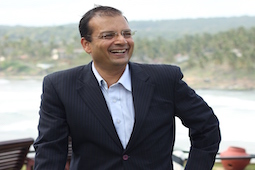
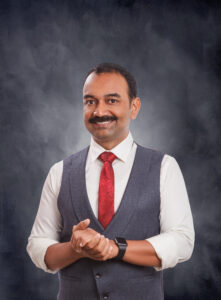
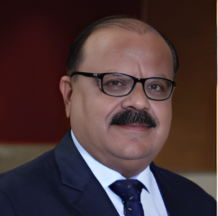
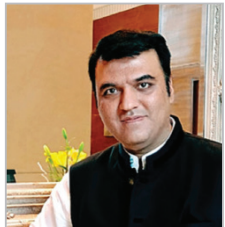




Leave a Comment